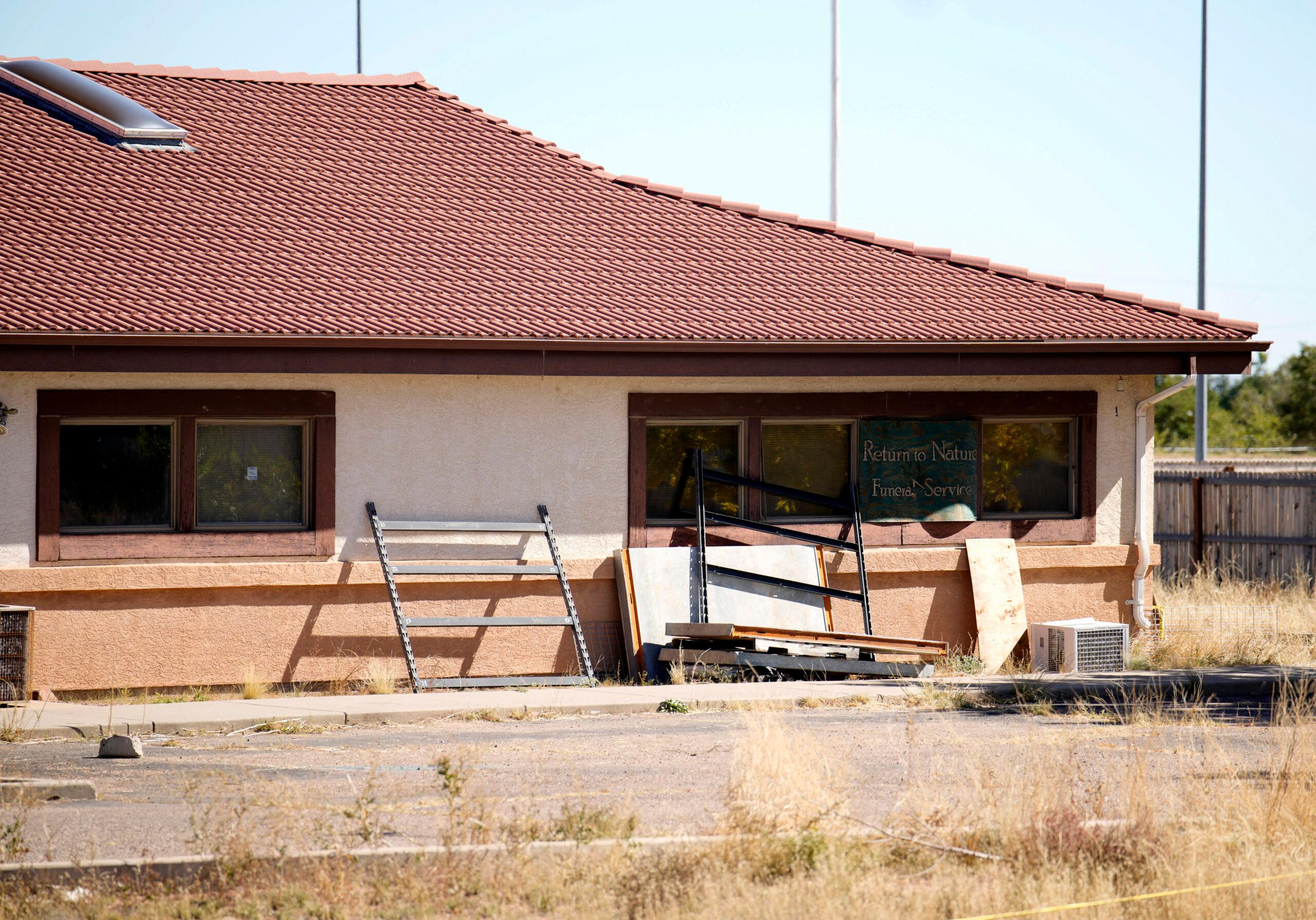
Colorado lawmakers will propose new regulations for funeral homes during the upcoming legislative session.
The move comes after several high-profile incidents in recent years of egregious mismanagement that have state officials, and even industry leaders, concluding that more oversight is necessary.
“It is clear that the public is harmed by the general lack of regulation of Funeral Service Professionals in Colorado,” states a recent report on the situation from the Colorado Department of Regulatory Agencies’ Division of Professions and Occupations.
The most recent case came to light in the fall of 2023, when the owners of a so-called green burial company in Penrose, the Return to Nature Funeral Home, were charged with improperly storing nearly 200 bodies and sending fake ashes to families.
“How on earth can you honestly keep going and sleep at night doing that? I don't know. That is something I cannot comprehend,” said Joe Walsh, funeral director at 5280 Cremation and Funeral Services in Aurora and head of the Colorado Funeral Homes Directors Association.
Walsh said the accusations around Return to Nature are disgusting and horrifying, but this isn’t the first time he’s been shocked by a Colorado funeral home’s business practices.
In another high-profile case, the operators of a funeral home in Montrose were found to have sold body parts from hundreds of corpses without the permission of the deceased or their loved ones. Megan Hess, the former owner of Sunset Mesa Funeral Directors, is now serving a 20-year federal sentence.
“We don't want any event of any magnitude, whether it's one person or a hundred or anything, ever to happen like that,” said Walsh.
That’s why the Colorado Funeral Homes Directors Association is calling for stricter standards for people who work in the industry, something Walsh believes is long overdue.
“Individuals can open these businesses without any prerequisite experience or certification or regulation as to running the businesses,” said Walsh. “That seems to be a gap that has caused significant problems in Colorado, with a lot of these tragedies of misidentifying remains or improper storage of bodies and a variety of other things that have unfortunately happened here.”
Colorado’s regulatory agency staff collected input from more than 100 people about the potential need for more oversight, as part of a report to the legislature.
While the circumstances at Sunset Mesa and Return to Nature were national news, the report detailed several troubling incidents at other facilities. Those include improper recordkeeping, shoddy embalming that led to decomposition, odor, and improper refrigeration, as well as cases of remains laying in pools of their own body fluids and unsecured ashes left on unclean cooling trays.
“At least six cases present issues of the public being harmed by an arguable lack of competency and at least eight cases present issues of intentional and/or criminal conduct resulting in harm to the public,” concluded the analysis, which was released at the end of 2023.
Democratic Sen. Dylan Roberts of Frisco is working on a bipartisan effort to regulate the industry.
“We have discovered that Colorado is the only state — the only state out of 50 states — that does not have any type of licensing for funeral homes, crematory or mortuary directors or employees,” said Roberts.
Roberts said he first got involved with the issue after a funeral home in his district in Leadville was caught mixing the ashes of a deceased newborn with cremains from other individuals, which led to an investigation and charges.
“There were cremations that were misidentified or unidentified. So multiple bodies had been combined together and there was no way to tell anymore whether the cremations they received was actually their loved one,” said Roberts.
He said he thinks most Coloradans assume the businesses they're dealing with are ethical and have adequate experience and training. And while he believes most funeral homes fit that description, there’s not currently a way for families to clearly tell.
“Coloradans would assume that there is some level of oversight, but there's really not.”
Republican Rep. Matt Soper of Delta is another main co-sponsor of the legislation. He said the bill is still being worked on but will require a licensing exam and annual training and testing on ethics and morals.
For Soper, that continuing education piece and the ethics component are especially important.
“At least you're reminded what abuse of a corpse is, and you're reminded that you're working for families when they're in their most vulnerable state, and that you've been given tremendous trust,”
He said people want to know that their loved one’s remains are going to be taken care of in a dignified and honorable way.
“You're handling that loved one's body and to me that's really the real crux — is getting back to, ‘hey, these are the standards society expects.’”
While some opposition is expected to the bill, perhaps the biggest hurdle the sponsors may face will be the money for implementation.
In 2022, lawmakers gave the state authority to inspect funeral homes, but with not even one full-time employee currently assigned to do those inspections, the industry says that’s another area that could improve, too.









